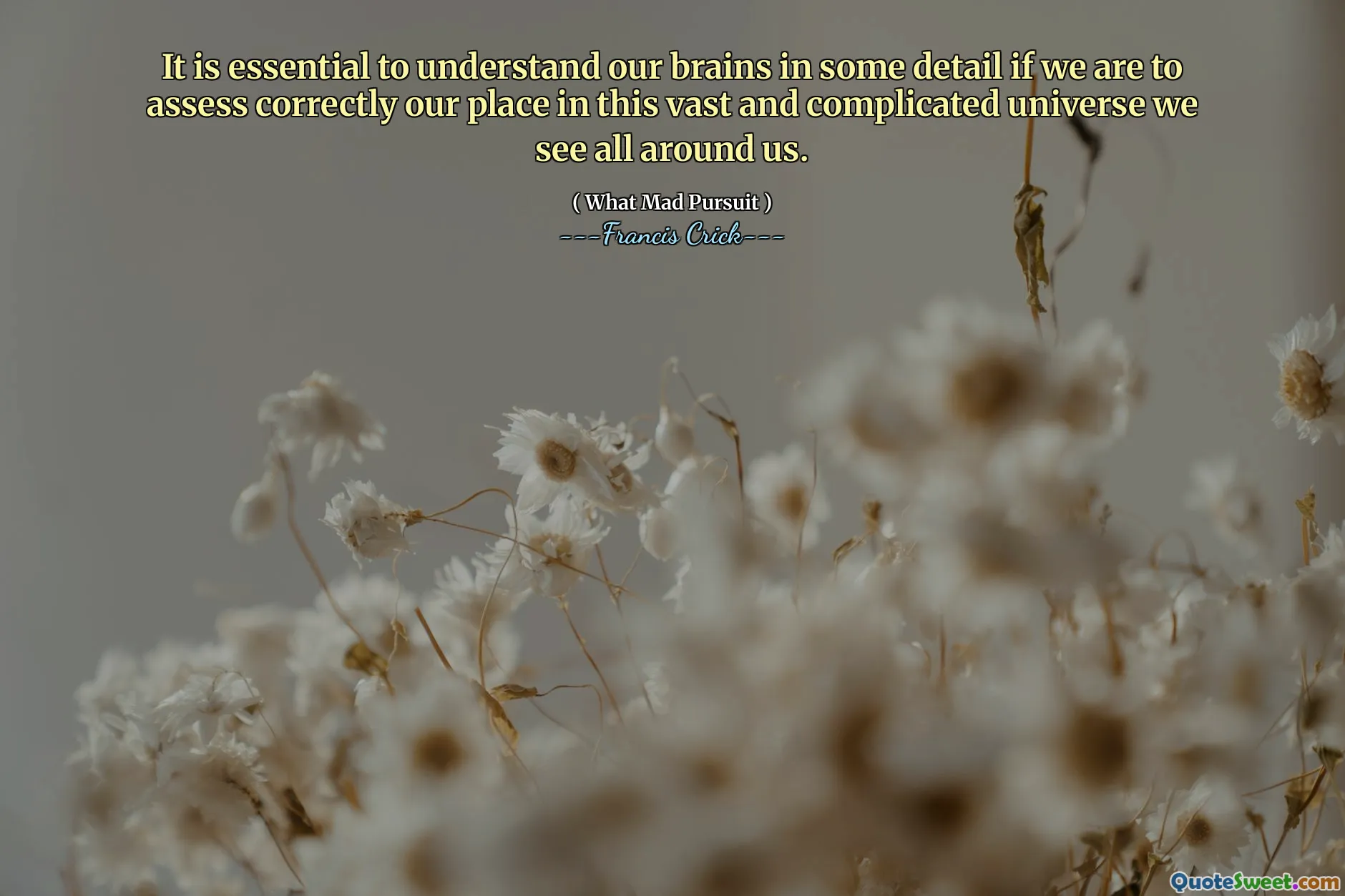
It is essential to understand our brains in some detail if we are to assess correctly our place in this vast and complicated universe we see all around us.
Understanding the human brain is fundamental to comprehending not only ourselves but also our position within the universe. Our brains are incredibly complex organ systems, composed of billions of neurons interconnected through intricate networks. This complexity is what enables our consciousness, perception, reasoning, and creativity. When examining our place in the universe, recognizing the capabilities and limitations of our cognition becomes crucial. Without a thorough understanding of how our minds process information, interpret reality, and form beliefs, any assessment of our role or significance risks being superficial or misguided. Knowledge of neural mechanisms can shed light on the biases, illusions, and misconceptions that influence our worldview, helping us to cultivate more accurate perceptions of ourselves and our environment. Moreover, advancements in neuroscience not only help us understand human nature but also spur innovations that enhance our ability to explore and interpret the cosmos—telescopes, spacecraft navigation, data analysis, and more. This reflection underscores the importance of science in unraveling life's mysteries, both inward and outward, and advocates for continued curiosity and exploration. Striving to understand our brains is ultimately an endeavor to understand the very essence of human existence, enabling us to navigate our universe with greater insight and humility. Recognizing our cognitive capacities allows us to appreciate the marvel of consciousness and keeps us grounded in the reality of our origins and potential.
(From "What Mad Pursuit" - Francis Crick)






